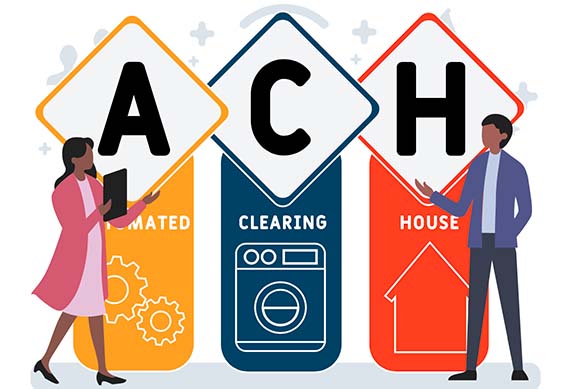If you’re a small business owner, ACH—or Automated Clearing House—is probably something you’ve heard of. But how do you know if it’s right for your business? And what are the benefits of getting ACH services in the first place?
ACH origination is a fast and efficient way to get money into your bank account. Businesses also use it to pay suppliers, vendors, and other companies securely and conveniently. But what exactly is ACH origination? And how does it work? Let’s dig deeper into this process so you can determine whether it’s right for your business.
What is ACH origination?
If you’re a business owner or manager, you’ve probably heard the terms ACH, and ACH origination thrown around quite a bit. But what do they mean?
ACH stands for Automated Clearing House, which is the system banks use to move money between each other. Origination refers to the process of creating an ACH transaction—in other words, the process of sending money from one account to another.
This system was established by the National Automated Clearinghouse Association (NACHA) in 1974 as a way for financial institutions to quickly move funds between each other electronically and eliminate paper checks. Nowadays, ACH transactions are used by businesses to send money to and from other companies (known as “debits”), and consumers can use them to pay bills such as utilities or loans.
Benefits of ACH services
ACH origination is a service that allows businesses to save money by processing ACH transactions. It’s designed to be an alternative to traditional wire transfers and check payments.
ACH services offer many benefits to small businesses. These include:
-
- Flexibility: ACH services can be used at any time and are not limited to a specific time or day, unlike other payment methods.
-
- Speed: ACH payments typically take one or two business days to complete. This is faster than checks and other forms of payment, such as debit cards and credit cards, which can take several days to clear.
-
- Convenience: You don’t have to travel anywhere to pay someone using an ACH service. You also don’t need any special equipment to use one of these services; all you need is an internet connection and a computer or mobile device with access to internet services.
-
- Security: ACH payments are secure because they’re processed through a network monitored by the Federal Reserve. If a hacker were to hack into this system, they would have access to thousands of other bank accounts and transactions, not just yours.
Limitations of ACH services
ACH services are a great way to move money quickly and securely, but they have some limitations. Here’s a list of some of the most common limitations:
-
- Not all countries have an ACH service. For example, Canada does not have an automated clearing house that processes cross-border transactions with other countries.
-
- All ACH systems accept not every currency. Some currencies may require additional conversion fees or other processing costs that can make them less cost-effective if used.
-
- Even if your bank offers ACH services, it may not accept transactions from another institution’s network or vice versa because of technical incompatibilities between institutions’ internal systems and computer networks (e.g., differences in banking software).
-
- ACH services can also be limited to certain types of transactions. For example, some institutions limit ACH transactions to international wire transfers or may only accept certain currencies as part of their service offerings. In addition, if the bank you’re sending money from does not have an established relationship with the institution receiving the funds, it may take longer for the transaction to process and be accepted by both banks.
Finally, ACH can be expensive if not used correctly by your company or bank. If you have high volume transactions and low dollar amounts per transaction, ACH may cost more than other options like wire transfers or checks if done incorrectly by your bank or company’s policies.
How to get ACH services for your business
ACH origination services are an essential part of the ACH network. These services allow companies to send payments directly from their bank account rather than through a credit card processor or a third-party provider. This saves them time and money while helping avoid chargeback disputes with customers who want refunds after making purchases online.
ACH is a system that allows businesses to send electronic payments to and from their bank accounts. It’s a fast, secure, and reliable way to pay your suppliers and employees, accept customer payments, or make direct deposits into employee accounts.
If you’re new to ACH, here are the three steps you’ll need to take to get started:
1. Get an ACH agreement with your bank. This will allow your bank to initiate ACH transactions on your behalf and let them know what types of transactions you’re trying to complete.
2. Get an ACH debit or credit card reader or software solution that supports ACH origination (the ability for your business to send money through an electronic payment). Several options are available depending on your needs.
3. Sign up for one of the two leading networks used in business-to-business payments—ACH Direct or Federal Reserve Wire (FedWire). These networks will allow you to receive payments from customers who use standard payment methods like checks or credit cards and then deposit those funds directly into your bank account. These networks are free to use and allow you to receive funds from any business that uses them, so long as they’re using an approved ACH reader or software solution.








